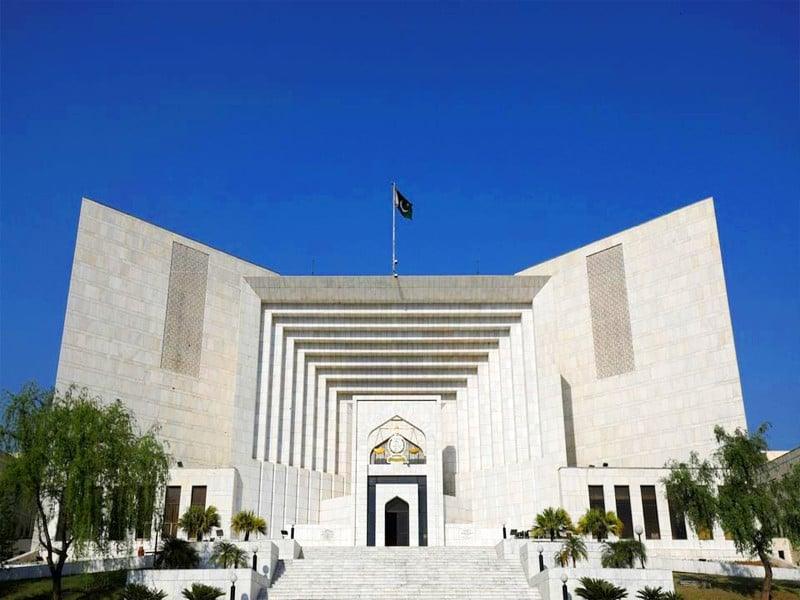Judge Hassan Azhar Rizvi wondered if there was a difference between those who commit terrorist acts, collaborate with enemy spies and ordinary civilians.
His remarks came while he was committed with an Lwyer at the hearing of an intra-short appeal concerning civil trials before the military courts.
He stressed that lawyer should make a clear distinction in their arguments, Express News reported.
The Supreme Court, under the Judge Amicin Khan, hears the case with a constitutional bench of seven members.
Khawaja Ahmed Hussain, representing judge (R) Jawad S. Khawaja, began his arguments by declaring that civilians should never undergo the court martial, because the procedures of the military courts do not meet the standards of a fair trial.
Khawaja argued that the five judges of the Supreme Court had not agreed on the transparency of the process of trial of the military court. Judge Hassan Azhar Rizvi replied by asking if there is no difference between those who commit acts of terrorism, collaboration with enemy spies and ordinary civilians. He insisted that the lawyer should make a clear distinction in their arguments.
Khawaja Ahmed Hussain said he was not defending terrorists or criminals. He also explained that if the martial court for civilians was possible, there would have been no need for the 21st amendment.
Justice Hassan Azhar Rizvi pointed out that certain crimes had been included in the army law throughout the 21st amendment.
Khawaja Hussain argued that the amendment to the army law had been sufficient to allow the court martial, there would have been no need for a constitutional amendment. If the court martial was possible, the court should rule that the 21st amendment was not necessary. He also stressed that article 175 had been modified in the 21st amendment, and there is no deposit provision until the decision was taken by the military courts.
Judge Hassan Azhar Rizvi pointed out that the military courts carry out rapid trials, noting that if a decision is made within 15 days, the question of bailing release becomes out of words.
In response, Khawaja Ahmed Hussain argued that in the military courts, calls do not go to an independent forum and that defendants do not have the freedom to choose their lawyer.
Judge Muhammad Ali Mazhar intervened, asking Khawaja to limit his arguments, namely whether the central decision was correct or not. Judge Hassan Azhar Rizvi responded by referring to the example of the Shaikh Liaquat Hussain affair, noting that there was no direct conflict between the public and the army at the time. He also underlined an incident in Karachi where an adult was removed.
Justice Jamal Khan Mando Khel raised an important point concerning the 21st amendment, declaring that political parties were excluded from his dispositions. He asked why there should be a distinction in the jurisdiction of the trial, asking if a terrorist attack occurred against the Parliament, the Supreme Court and the GHQ, why trials for attacks against Parliament and the Supreme Court would In front of anti-terrorism courts while the GHQ attack would go to a military court? He argued that the three attacks should be treated in the same way.
Khawaja Ahmed Hussain urged the court not to open a door that would allow civilians to be tried by military courts. Judge Amicin Khan said the court did not open any door, but only decided if the appeal was to be accepted or rejected.
Khawaja Ahmed Hussain also noted that the lawyer for the Ministry of Defense had argued that by virtue of article 184, paragraph 3, the appeal was not eligible. The lawyer said that article 8 (3A) applies in cases where the request is eligible. If article 184 (3) cannot be applied in this case, it cannot be applied in any other case either. Judge Yahya Afridi observed that article 184 (3) should be used with caution, but he also agreed that direct requests under this article were eligible in the military courts.




